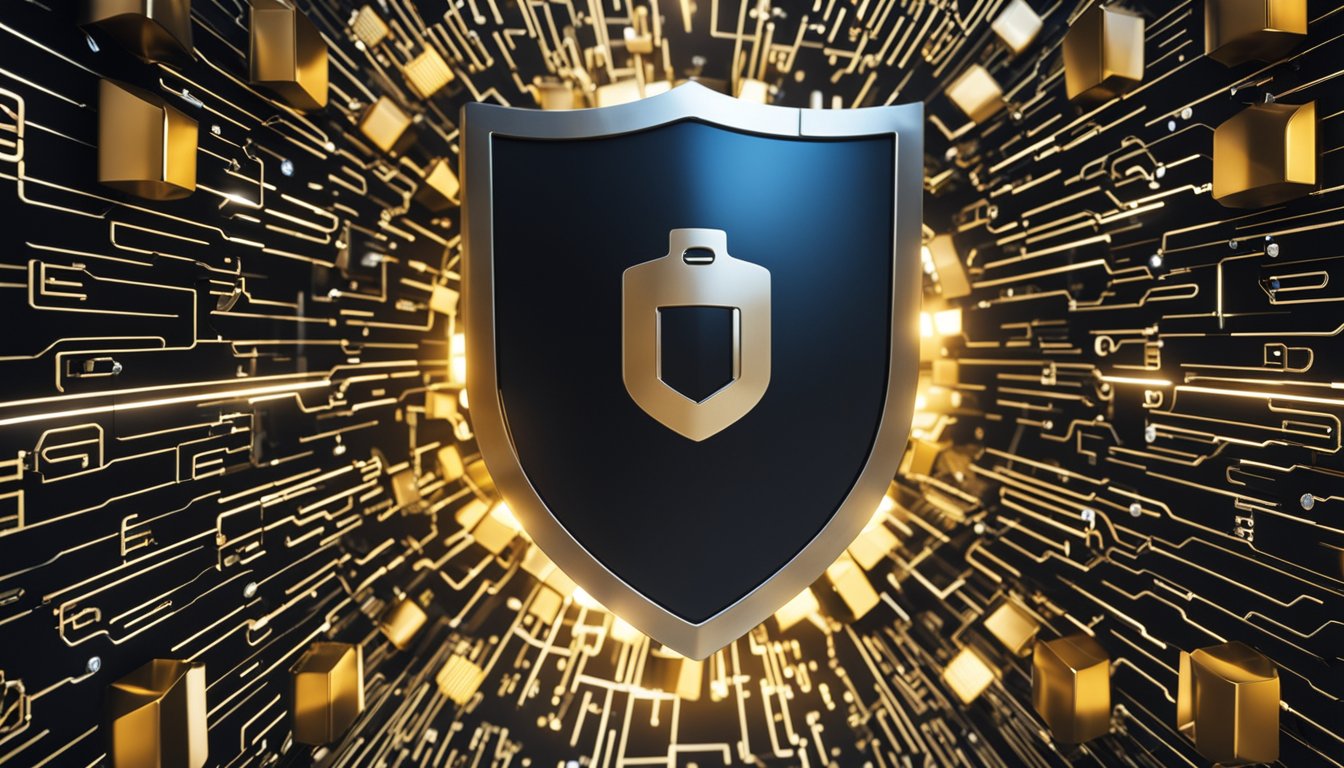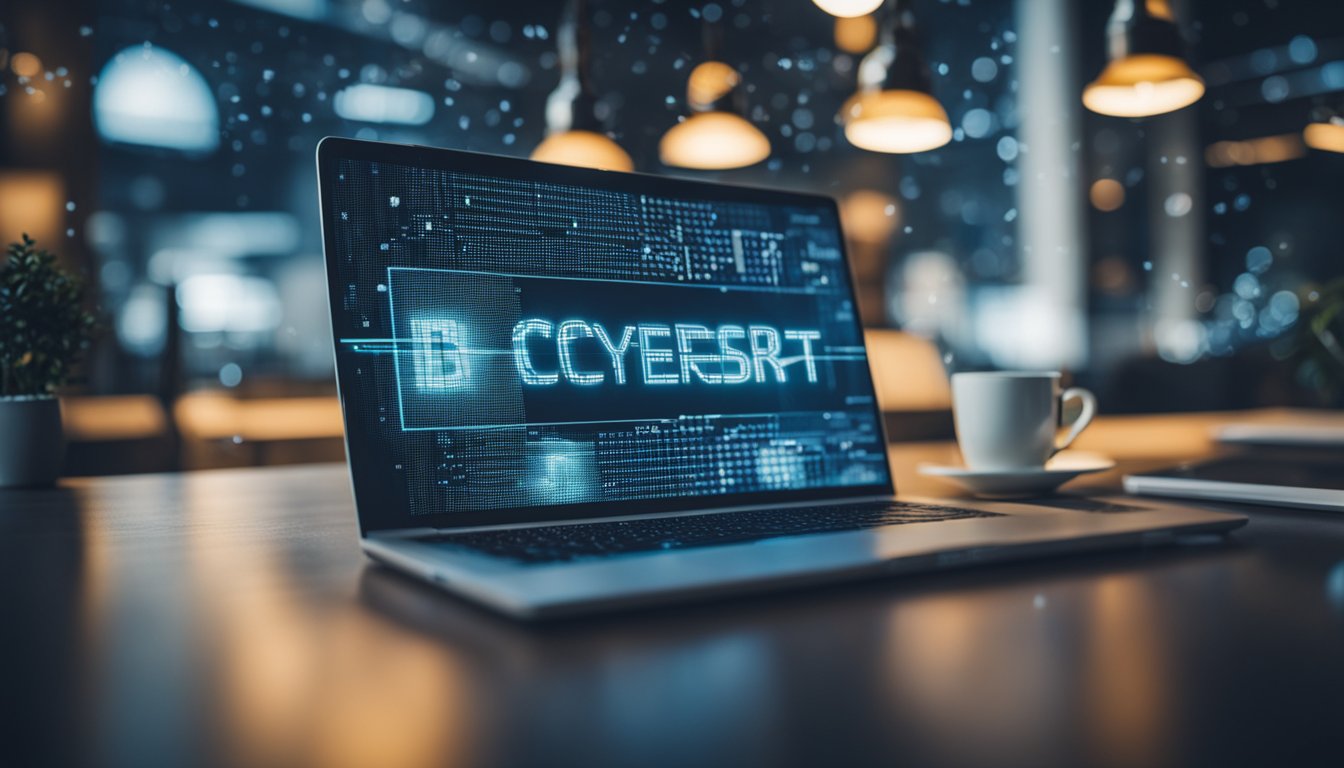Improve Cybersecurity for Your Business Expert Tips for Enhanced Protection
As a business owner, cybersecurity should be a top priority to protect your company's sensitive information from cyber threats. With the rise in technology, cyberattacks have become more frequent and sophisticated, making it essential to improve your cybersecurity measures. In this article, I will discuss how to strengthen your cybersecurity infrastructure, prevent and respond to cyber threats, and the role of policies, services, and partnerships.

Understanding cybersecurity is the first step in protecting your business from cyber threats. Cybersecurity involves protecting your company's information, networks, and systems from unauthorized access, theft, or damage. Cyber threats can come from various sources, including hackers, malware, phishing scams, and social engineering. It is crucial to identify potential cyber threats and take necessary measures to prevent them.
Building a robust cybersecurity infrastructure is essential to protect your business from cyber attacks. This involves implementing security measures such as firewalls, antivirus software, and data encryption. It is also important to train your employees on cybersecurity best practices and establish protocols for handling sensitive information. By taking proactive measures, you can reduce the risk of cyber attacks and protect your business from potential harm.
Key Takeaways
- Understanding cybersecurity is crucial to protecting your business from cyber threats.
- Building a robust cybersecurity infrastructure involves implementing security measures and training employees on best practices.
- Preventing and responding to cyber threats requires a proactive approach and the establishment of protocols for handling sensitive information.
Understanding Cybersecurity

As a business owner, it is crucial to understand the basics of cybersecurity. Cybersecurity is the practice of protecting your computer systems, networks, and sensitive data from unauthorized access, theft, or damage. With the increasing reliance on technology, cybersecurity has become a critical aspect of business operations.
A strong cybersecurity strategy involves a combination of people, processes, and technology. It is essential to educate your employees on cybersecurity best practices, such as creating strong passwords, avoiding suspicious emails, and keeping software up-to-date. This can help prevent cyber attacks that exploit human error.
In addition, implementing security processes, such as regular data backups and disaster recovery plans, can help minimize the impact of a cyber attack. It is also important to invest in cybersecurity technology, such as firewalls, antivirus software, and intrusion detection systems.
IBM is a leading provider of cybersecurity solutions for businesses of all sizes. Their services include threat intelligence, incident response, and identity and access management. With IBM's expertise in cybersecurity, businesses can have peace of mind knowing their systems and data are protected from cyber threats.
In summary, understanding cybersecurity is essential for any business owner. By implementing a combination of people, processes, and technology, businesses can minimize the risk of cyber attacks and protect their sensitive data. With the help of industry experts like IBM, businesses can stay ahead of evolving cyber threats and keep their systems secure.
Building a Robust Cybersecurity Infrastructure

As a business owner, I understand the importance of having a robust cybersecurity infrastructure in place to protect my company's sensitive data and information. Cybersecurity threats are becoming increasingly sophisticated, and it's essential to take proactive measures to prevent cyber attacks. Here are some steps I've taken to build a strong cybersecurity infrastructure for my business:
Infrastructure
I've invested in a robust infrastructure that includes firewalls, intrusion detection and prevention systems, and security information and event management (SIEM) systems. These systems help to detect and prevent unauthorized access to our network and data.
Network Security
I've implemented strong network security measures, such as using strong passwords, two-factor authentication, and restricting access to sensitive data. I also regularly monitor our network for any suspicious activity and have established protocols for responding to security incidents.
Cloud Services
We use cloud services for data storage and collaboration. To ensure the security of our data in the cloud, we've implemented strict access controls and encryption protocols. We also regularly review our cloud service providers' security practices to ensure they meet our standards.
Software Updates
We regularly update our software to ensure that we have the latest security patches and features. We also use reputable software vendors and carefully evaluate any third-party software we use to ensure their security practices meet our standards.
Virtual Private Network (VPN)
We use VPNs to provide secure remote access to our network. This allows our employees to work from home or on the go without compromising the security of our data. We also ensure that our VPNs are configured correctly and that employees are trained on how to use them securely.
By implementing these measures, I'm confident that my business has a robust cybersecurity infrastructure in place to protect against cyber threats.
Preventing and Responding to Cyber Threats

As a business owner, I know that cybersecurity is a top priority for any organization. It is important to have a plan in place to prevent and respond to cyber threats. In this section, I will discuss some key strategies for preventing and responding to cyber threats.
Training and Resources
One of the most effective ways to prevent cyber attacks is by providing cybersecurity training to employees. This training should cover topics such as phishing attacks, malware, viruses, and spyware. It is also important to provide resources such as cybersecurity policies and procedures, as well as tools like multi-factor authentication (MFA) to ensure that employees are following best practices.
Identifying and Managing Vulnerabilities
Identifying and managing vulnerabilities is another important aspect of preventing cyber attacks. This can involve conducting vulnerability scans to identify potential weaknesses in your organization's systems and networks. It is also important to regularly update software and hardware to ensure that they are protected against the latest threats.
Dealing with Cyber Attacks
Even with the best prevention strategies in place, it is still possible for a cyber attack to occur. In these situations, it is important to have a plan in place for responding to the attack. This can involve isolating affected systems, notifying the appropriate authorities such as the Cybersecurity and Infrastructure Security Agency (CISA), and conducting a thorough risk assessment to determine the extent of the damage.
In conclusion, preventing and responding to cyber threats requires a combination of training, resources, vulnerability management, and incident response planning. By following these strategies, businesses can reduce the risk of cyber incidents and protect their sensitive data and systems.
Role of Policies, Services and Partnerships

As a business owner, I recognize the importance of cybersecurity in protecting my company's sensitive data and safeguarding my customers' information. To achieve this, I understand that it is crucial to have a comprehensive cybersecurity strategy that includes policies, services, and partnerships.
Involvement of Leadership
As a CEO, I understand the importance of leading by example and setting the tone for a culture of cybersecurity within my organization. I recognize that cybersecurity is not just an IT issue, but a business issue that requires the involvement of all employees. Therefore, I ensure that all employees receive regular training on cybersecurity best practices and that our policies and procedures are regularly reviewed and updated.
Role of Vendors and Partners
I also understand that partnering with vendors and service providers is crucial in improving our cybersecurity posture. When selecting vendors and partners, I prioritize those who have strong cybersecurity measures in place and who are committed to ongoing security improvements. I also ensure that our contracts with these vendors include clear security requirements and that we conduct regular security audits to ensure compliance.
Cyber Insurance
Another important aspect of our cybersecurity strategy is cyber insurance. I have worked with our insurance provider to ensure that we have a comprehensive policy that covers all potential cyber threats, including data breaches and cyber attacks. This provides an added layer of protection in the event of a security incident and helps to mitigate the financial consequences.
In addition to the above, I have implemented a range of cybersecurity best practices, including the use of strong passwords, multifactor authentication, and regular data backups. We also utilize cloud storage for our critical data and have implemented strict due diligence procedures when it comes to social media and smartphone use.
Overall, I recognize that cybersecurity is an ongoing process that requires constant attention and effort. By prioritizing policies, services, and partnerships, I am confident that we can continue to improve our cybersecurity posture and protect our business and our customers from cyber threats.
Frequently Asked Questions

What are the top security measures to protect your business from cyber threats?
There are several security measures that small businesses can take to protect themselves from cyber threats. Some of the top measures include:
- Installing antivirus software on all devices used for work-related purposes, including those owned by employees.
- Implementing firewalls to prevent unauthorized access to your network.
- Encrypting sensitive data to protect it from unauthorized access.
- Regularly updating software and operating systems to patch vulnerabilities.
- Providing cybersecurity training to all employees to increase awareness and reduce the risk of human error.
What are the most effective cybersecurity services for small businesses?
There are several cybersecurity services that small businesses can use to enhance their security posture. Some of the most effective services include:
- Cloud-based security solutions that provide protection against cyber threats in real-time.
- Managed security services that provide 24/7 monitoring and response to cyber threats.
- Cyber insurance that provides financial protection in the event of a cyber attack.
- Penetration testing services that simulate cyber attacks to identify vulnerabilities in your network.
What should be included in a small business cybersecurity checklist?
A small business cybersecurity checklist should include the following:
- Regularly updating software and operating systems to patch vulnerabilities.
- Installing antivirus software on all devices used for work-related purposes, including those owned by employees.
- Implementing firewalls to prevent unauthorized access to your network.
- Encrypting sensitive data to protect it from unauthorized access.
- Providing cybersecurity training to all employees to increase awareness and reduce the risk of human error.
- Backing up critical data to prevent loss in the event of a cyber attack.
- Developing an incident response plan to quickly and effectively respond to cyber attacks.
What is the importance of cybersecurity for small businesses?
Cybersecurity is crucial for small businesses because they are often targeted by cyber criminals due to their perceived vulnerability. Cyber attacks can result in financial losses, damage to reputation, and loss of customer trust. Implementing effective cybersecurity measures can protect small businesses from these risks and ensure their long-term success.
How can small businesses improve their cybersecurity awareness?
Small businesses can improve their cybersecurity awareness by:
- Providing cybersecurity training to all employees to increase awareness and reduce the risk of human error.
- Regularly communicating cybersecurity best practices to all employees.
- Conducting regular cybersecurity assessments to identify vulnerabilities in your network.
- Encouraging employees to report any suspicious activity to IT or management.
- Staying up-to-date on the latest cyber threats and trends.
What are the three most effective ways to strengthen your business's cybersecurity?
The three most effective ways to strengthen your business's cybersecurity are:
- Implementing a comprehensive cybersecurity plan that includes regular assessments, employee training, and incident response procedures.
- Regularly updating software and operating systems to patch vulnerabilities.
- Providing cybersecurity training to all employees to increase awareness and reduce the risk of human error.

We are committed to delivering a new level of automation that will help organizations save time, money, and staffing resources.
 WRITE FOR US!
WRITE FOR US!
